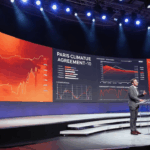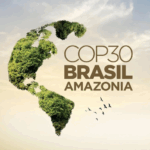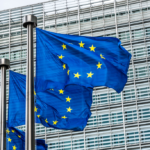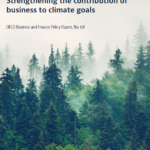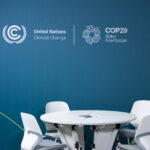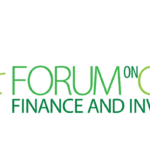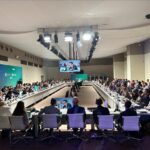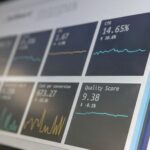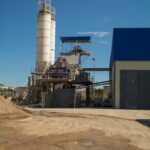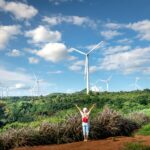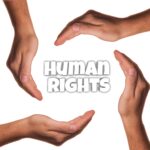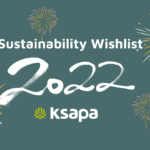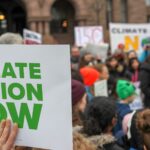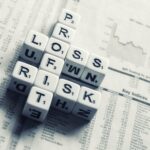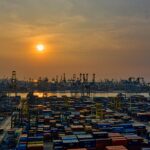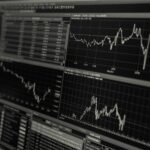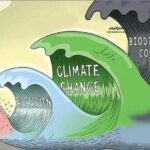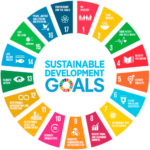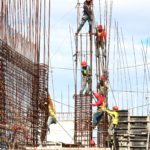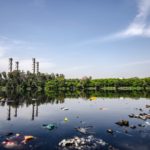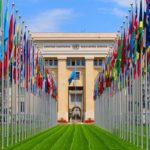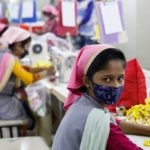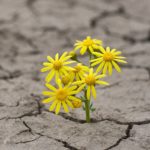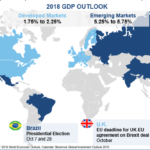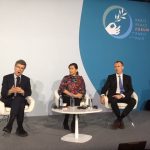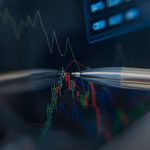The year 2023 witnessed several regulatory evolutions aimed at accelerating decarbonization and better addressing the social considerations inherently associated with success conditions. Themes like biodiversity and plastic waste gained prominence. This article reviews three key challenges to follow in 2024 for both businesses and investors, whether based in the European Union or engaged in trade with the EU.
Advances and New Standards as of January 1, 2024
At the beginning of 2024, the European Union (EU) notably made significant progress in the field of green transition. Several key topics were addressed, ranging from Corporate Social Responsibility (CSR) to the regulation of extra-financial rating agencies. These initiatives aim to establish a solid framework to guide companies towards more sustainable and responsible practices.
CSRD Comes into Effect
January 1, 2024, marked the entry into force of the Corporate Sustainability Reporting Directive (CSRD), a major instrument to strengthen corporate obligations regarding social responsibility. This directive underscores the growing importance given to sustainability in business practices, encouraging companies to adopt more responsible approaches environmentally and socially – living wage becoming a concrete expectation for workers along the supply chain among other requirements.
Developments in SFDR to Monitor Closely
Simultaneously, discussions took place regarding labels designed to clarify the Sustainable Finance Disclosure Regulation (SFDR) in articles 6, 8, and 9 funds. These labels, intended to guide investors towards more sustainable choices, represent a step towards transparency and alignment with environmentally friendly practices. The results of the completed consultation in late 2023 will provide guidance to be made public in the first quarter of 2024.
Ready for CSDDD?
Additionally, the strengthening of regulations on social and environmental standards in supply chains is becoming a common practice, with more than a dozen countries imposing such regulations globally. The arrival of the Corporate Sustainability Due Diligence Directive (CSDDD) requires companies and investors to ultimately do three things:
- Conduct a review of the risks posed by the company or investor regarding human rights arising from their activities or assets in relation to society. It is now clear that this analysis must be strengthened by considering the social implications generated by their environmental risks. For example, how does the generation of plastic waste or insufficient climate efforts violate human rights, similar to issues like child labor or forced labor?
- Develop an action plan explaining the understanding and measures taken. It is essential to engage and strive to evolve the practices of stakeholders who share responsibility for risk reduction.
- Demonstrate the relevance of implemented measures. This involves moving away from a logic of accounting for means deployed to sharing information accounting for results obtained.
These questions stir our entire global client community, not only in the European Union but also in the United States, Canada, Africa, the Middle East, Asia-Pacific, or Latin America.
Reliability and Ownership of ESG Data Becomes a Complex Regulatory Asset:
A debate on the relevance of Environmental, Social, and Governance (ESG) in the context of artificial intelligence (AI) strengthening opportunities as much as opacity in ESG data arises. The American debate on the relevance of ESG is unnecessary and flawed in substance. It is widely demonstrated that ESG provides a more holistic view of asset valuation without imposing a choice on the investor. However, the debate on ESG is very interesting in form; it increasingly demands rigor in the choice, generation, and reliability of ESG data. This occurs in a context where ESG becomes both a regulatory compliance issue and increasingly relies on artificial intelligence, making its creation opaque and legally complex.
EUGBS Enhances the Credibility of Green Bonds
Another notable development is the EU’s initiative to boost the credibility of green bonds through the EU Green Bond Standard (EUGBS). Currently, 85% of funds allocated to green bonds align with the European taxonomy, indicating a growing adherence to EU-established standards. However, this also poses challenges, especially in terms of financing needs for the green transition.
ESG Rating Agencies Under Pressure
The EU regulation of extra-financial rating agencies has also been highlighted, aiming to provide separate ratings for Environmental (E), Social (S), and Governance (G) aspects. This measure, scheduled before the June 2024 European elections, seeks to enhance the transparency of financial information related to sustainability.
Challenges to Follow in 2024: Implementing COP Content, Financing the Transition, Overcoming Judicialized Greenwashing
A COP Process Making Spectators Act
Our series of articles on COP 28 summarizes the issue: while the process led to the Paris Agreements in 2015, it is no longer effective in concretely advancing various issues. Now it is up to local public authorities, businesses, and civil society to take the lead. No government, through COP processes, has produced climate action commensurate with the challenges.
Energy Transition: The Example of Electric Batteries
For instance, Ksapa leads a collaborative initiative – Green Transition Free from Forced Labor. It brings together various major investors and companies based in the United States and the EU. This initiative develops tangible tools facilitating the transition and the development of “green” technologies within frameworks respectful of human rights. In this field, COP 28 was marked by an ambitious decision to reduce the emissions of new vehicles by 90% by 2040. In practice, the texts emanating from COP 28 leave States and businesses very free in their commitments and fields of action. They are not concretely committed to anything. Yet, this decision mechanically creates pressure on the production of critical metals and minerals necessary for the manufacturing of electric batteries. The finalization of EU discussions on the regulation of Critical Raw Materials has confirmed a list of 34 materials requiring secure supply, with demanding objectives for production, transformation, and recycling by 2030 within the EU alone. Ksapa has produced a calibrated guide on the OECD due diligence standards to organize its supply chains by engaging various stakeholders to ensure a human rights-respecting transition. To be followed in 2024.
Energy Transition: The Financing Question
Announcements of trillions directed towards decarbonization objectives follow from COP to COP. The creation of new funds also accumulates from COP to COP. However, the toughest part remains: honoring the commitments. This raises concerns about the mobilization of necessary finances. For example, although the European Commission is counting on facilitating access to existing funds from the post-Covid recovery plan, questions remain about the magnitude of the required investments. The new instrument STEP (Strategic Technologies for Europe Platform), with an initial proposal of 10 billion euros, is on the table, but its allocation depends on the cooperation of Member States, raising reservations. Whatever happens, this order of magnitude would be very insufficient, according to observers, to meet the transition needs. Beyond raw materials, all the strategic technologies and energies targeted in the Net Zero Industry Regulation (NZIA) require a significant boost: wind, solar, heat pumps, batteries, hydrogen, power grids, biogas, sustainable fuels (from biomass or hydrogen). As if the question of these strategic funds were not enough, COP 28 deemed it necessary to add to the list, demanding a rapid acceleration of funding for capital-intensive sectors, which have no scientific consensus, neither locally nor internationally, regarding their ability to provide a concrete response to the climate urgency imposing rapid decarbonization in the coming decade: carbon capture and nuclear. The American elections scheduled for November 2024 finally raise concerns about the stability of commitments financing decarbonization, carried within the Inflation Reduction Act plan for the coming years.
Greenwashing Enters a New Era of Legal Disputes
Climate litigation filed in over 65 jurisdictions worldwide has increased by over 140% since 2020. For instance, the European Consumer Organization (BEUC) filed two emblematic complaints with the European Commission in 2023:
- One targets greenwashing and deceptive commercial practices of 17 airlines
- Another focuses on allegations of deceptive commercial claims about the recyclability of water bottles from major brands
These incidents underscore the need to strengthen monitoring and compliance to ensure a credible transition. Regulatory compliance, such as CSRD and upcoming CSDDD, requires a strategic and operational review of activities, a task performed daily by Ksapa experts worldwide. The gradually deployed digital passport in the textile sector, for example, promises to be another source of disputes based on the quality of analysis and data that companies can provide.
Conclusion
In conclusion, the trends to follow in 2024 reflect a growing awareness accelerating a transition to a just decarbonization, amplifying in volume while taking into account the impacts on human rights. However, significant challenges persist, requiring close cooperation between states, businesses, and civil society to realize these ambitions and ensure a more sustainable and just future for all. In this effort, Ksapa combines a robust mix of expertise, an international premier network, digital tools, and advanced financial engineering, addressing these challenges daily with our business and investor clients worldwide. Contact us to learn more about how our services can help you implement and deploy concrete, large-scale programs.
Image credit: rawpixel.com on Freepik, modified in a montage by Ksapa.
Président et Cofondateur. Auteur de différents ouvrages sur les questions de RSE et développement durable. Expert international reconnu, Farid Baddache travaille à l’intégration des questions de droits de l’Homme et de climat comme leviers de résilience et de compétitivité des entreprises. Restez connectés avec Farid Baddache sur Twitter @Fbaddache.







